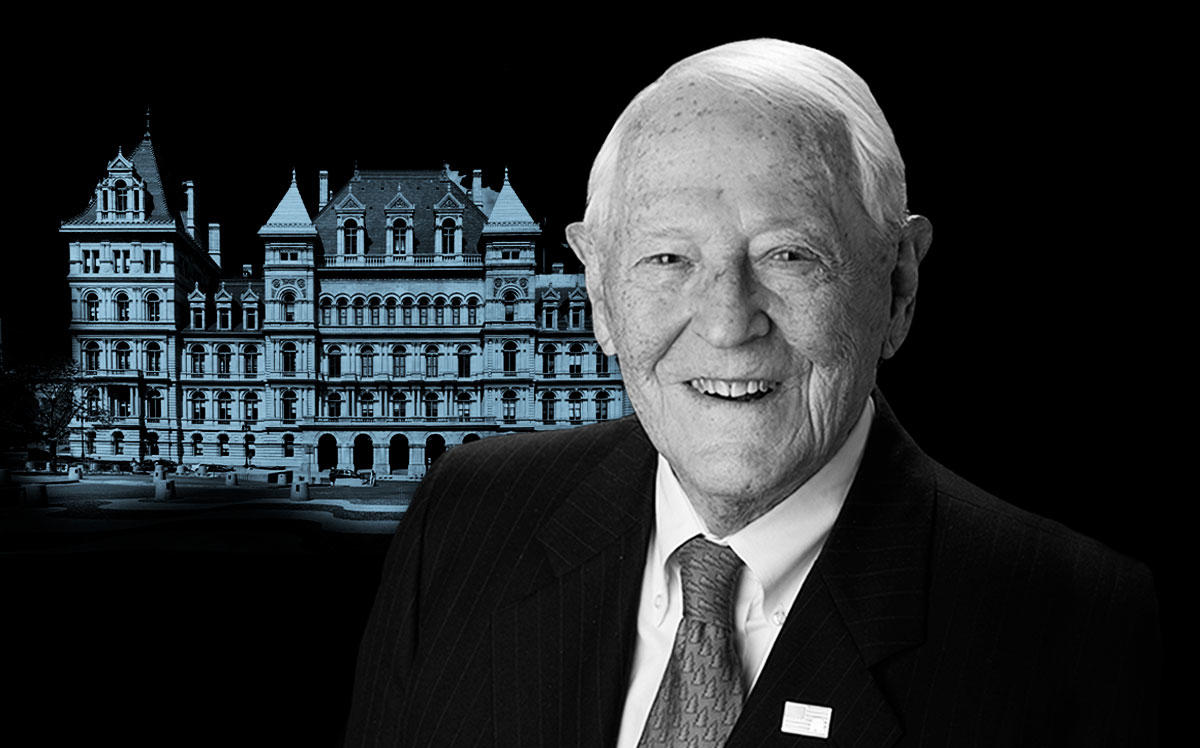Trending
Charles Urstadt, architect of vacancy decontrol, dies at 91
Real estate figure was also driving force behind Battery City

Charles Urstadt, a former state official whose impact on New York’s real estate policy is still felt today, died on March 3 at his home in Bronxville, New York. He was 91.
Hailing from a New York real estate family, Urstadt began his career in the industry. He worked for William Zeckendorf Sr. before being drafted into state government under Gov. Nelson Rockefeller as the commissioner of the state’s housing regulator, at the time called Housing and Community Renewal.
But Urstadt is best known for the law that bears his name. In 1971, the “Urstadt Law” gave Albany power over New York City’s rent-regulation regime by forbidding any locality from enacting a stricter form of rent control than that imposed by the state. The power that the Urstadt Law gave Albany over New York’s rent law set the stage for a dramatic shift in policy after democrats took control in 2018.
The Urstadt Law also enacted vacancy decontrol, a policy that would last nearly 50 years.
The rule, which mandated that any rent-regulated unit that became vacant would be deregulated, was hailed by the real estate industry as a lifeline for New York City’s rental landlords, at a time when the majority of rental units were under rent control. But the subsequent deregulation of tens of thousands of units led the state legislature, under intense pressure from New York City voters, to enact the 1974 Emergency Tenant Protection Act and re-regulate many of the units, allowing for a gradual phasing out of rent regulation. Over 150,000 units left rent regulation from 1990 to 2019 under the rule, which was repealed last year.
Urstadt also presided over the development of large state-sponsored projects, including Co-Op City in the Bronx and Starrett City in Brooklyn. Urstadt was also instrumental in the creation of Battery City, serving as the Battery Park City Authority chairman and then chief executive for much of the late 1960s into the late ‘70s.
After serving as state housing commissioner, Urstadt held an interest in Douglas Elliman and then commercial brokerage Pearce, Urstadt, Mayer & Greer, according to the New York Times. He joined shopping center real estate investment trust Hubbard Real Estate Investments in 1975. It was later renamed Urstadt Bibble Properties.
In addition to his son, who is chairman of Urstadt Biddle Properties, Urstadt is survived by his wife, Elinor Urstadt; his daughter, Catherine Biddle; and two granddaughters.
[NYT] — Georgia Kromrei




